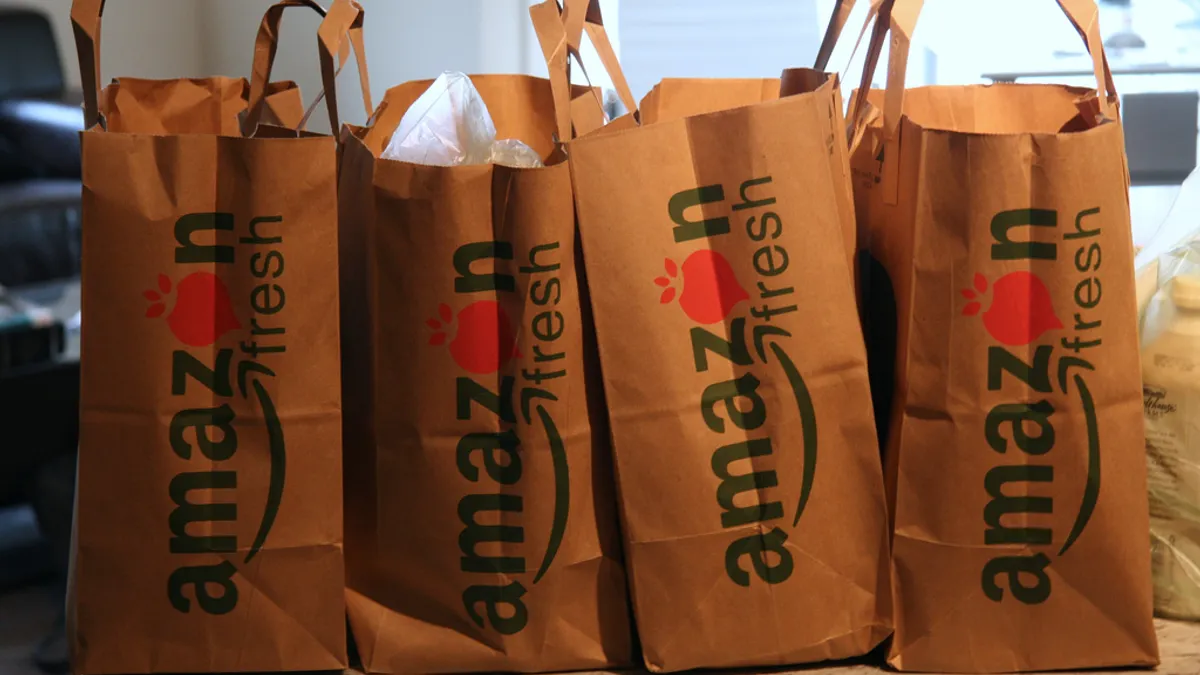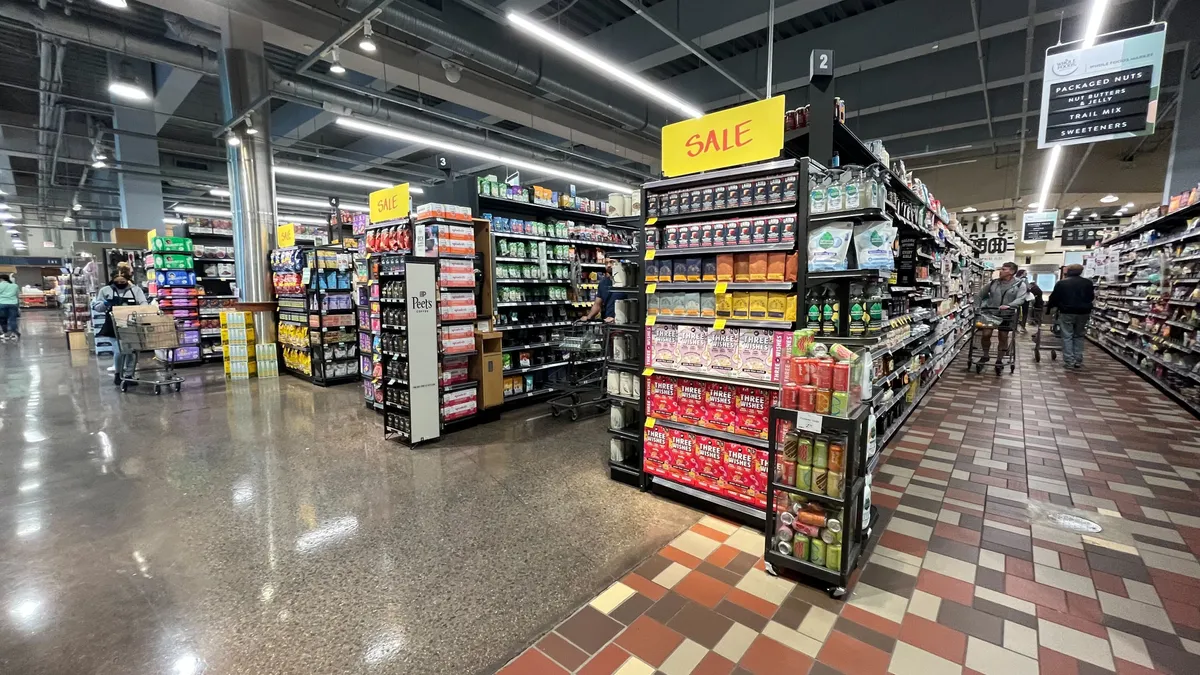Dive Brief:
- Quartz reports that Amazon is building private label selections across product categories — including food — and doesn’t often list its role as those brands' parent company.
- The publication notes that consumers may think they’re buying from small companies when in fact they’re buying from Amazon.
- Amazon’s grocery brands include Mama Bear baby products, Happy Belly snacks and fresh products, and Single Cow Burger. The company has also applied for a trademark for a frozen food brand called Single.
Dive Insight:
Quartz’s investigation ultimately finds what just about everyone in the retail industry already knows: Amazon offers private label products under a variety of brand names and will continue to expand this selection over time.
But the story also makes an interesting observation. At a time when consumers are supporting smaller brands and demanding transparency about their product origins, could Amazon’s involvement with many boutique-style brands prove to be a liability?
It stands to reason that a shopper who’s interested in naturally raised Wagyu beef might be distrustful of involvement from the world’s largest internet retailer. Similarly, shoppers looking to support niche brands — of which there are many on Amazon’s site — might not be thrilled to learn Amazon is behind that all-natural granola or that fair trade coffee.
Then again, Amazon’s involvement doesn’t change the fact that its Single Cow Burgers hail from a 7,000-acre farm in California, or that its coffee is indeed fair trade certified.
For years, mainstream CPG brands like General Mills and Campbell have bought up small natural and organic companies to increase their consumer base. Many consumers have made their peace with this fact, and often large companies are loath to tinker with the ethical and ingredients standards these smaller producers have established. Their role in expanding distribution and bringing down prices on these items can often be a net positive.
Moreover, consumers have become familiar with private label products over the past decade or so. Not only do they understand that large companies like Kroger, Safeway and Walmart are behind many natural and organic products — but they’re clamoring for the price savings these products offer. According to the Private Label Manufacturers Association, store brands have shot up to 17% of total grocery sales, and show no signs of slowing down.
Amazon sees the opportunity to expand its private label grocery selection. The company only offers a handful of brands currently, but will likely grow that assortment in the coming years. With its acquisition of Whole Foods, which should close later this year, Amazon will gain an inside track on food and beverage development, and also have access to what many experts believe is its shiniest private label prize: Whole Foods’ 365 brand.










